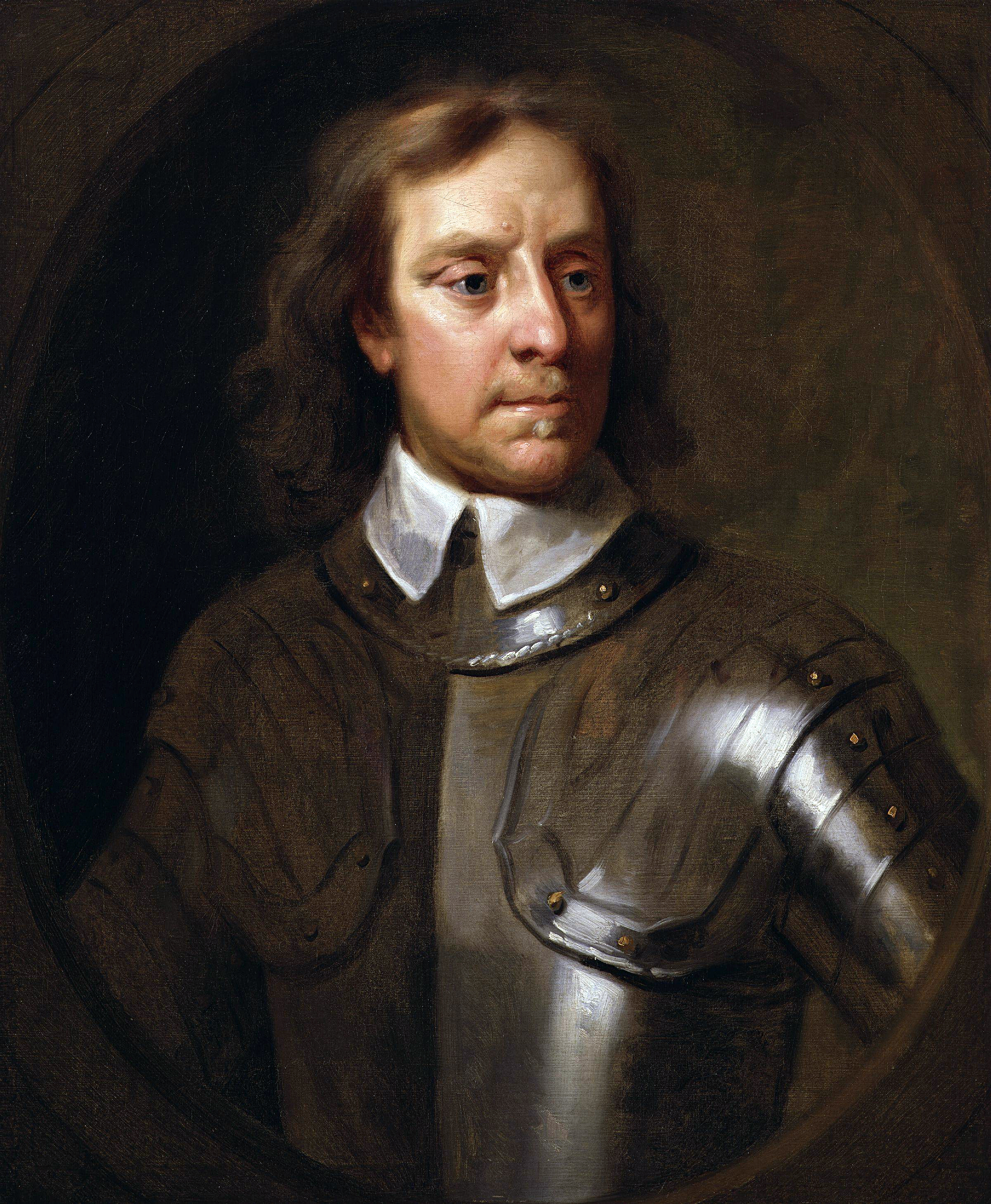Oliver Cromwell , foi um militar e líder político inglês e, mais tarde, Lorde Protetor. Nascido no seio da nobreza rural, os primeiros quarenta anos da sua vida são pouco conhecidos. Após passar por uma conversão religiosa na década de 1630, Cromwell tornou-se um puritano independente, assumindo uma posição, no geral, tolerante, face aos protestantes do seu tempo. Um homem intensamente religioso - auto-denominado de Moisés puritano — ele acreditava profundamente que Deus era o seu guia nas suas vitórias.
Cromwell foi eleito membro do parlamento pelo círculo eleitoral de Huntingdon em 1628, e por Cambridge, no Pequeno e Longo Parlamentos . Participou na Guerra civil inglesa, ao lado dos Parlamentaristas. Chamado de "Old Ironsides", foi rapidamente promovido da liderança de uma simples tropa de cavalaria para um dos comandantes principais do New Model Army, onde desempenhou um papel de destaque na derrota das forças realistas. Foi um dos signatários da sentença de morte do rei Carlos I em 1649, e, como membro do Rump Parliament , dominou a Comunidade da Inglaterra. Foi escolhido para assumir o comando da campanha inglesa na Irlanda durante 1649–50. As suas forças derrotaram a coligação entre os Confederados e os Realistas, e ocuparam o país – terminando, assim, com as Guerras confederadas irlandesas. Durante este período, foram redigidas uma série de Leis Penais contra os católicos romanos , e grande parte das suas terras foram confiscadas. Cromwell também liderou uma campanha contra o exército escocês entre 1650 e 1651, liderando os ''Roundheads'' contra os Cavalheiros , saindo vitorioso principalmente pelo fato do seu exército ter um modelo chamado ''New Model Army'' que tinha uma hierarquia baseada na meritocracia,ou seja, as altas patentes só eram alcançadas por merecimento.
A 20 de abril de 1653, dissolveu o Rump Parliament pela força, instituindo uma assembleia, de curta duração, conhecida como Parlamento Barebones, antes de ser convidado pelos seus pares para liderar como 'Lorde Protetor' da Inglaterra, País de Gales, Escócia e Irlanda, a partir de 16 de dezembro de 1653. Como governante, esteve à frente de uma política exterior muito agressiva e eficaz. Depois da sua morte em 1658, foi sepultado na Abadia de Westminster mas, após a tomada do poder pelos monarquistas, em 1660, o seu corpo foi retirado da sepultura, pendurado por correntes e decapitado.
Wikipedia
✵
25. Abril 1599 – 3. Setembro 1658
